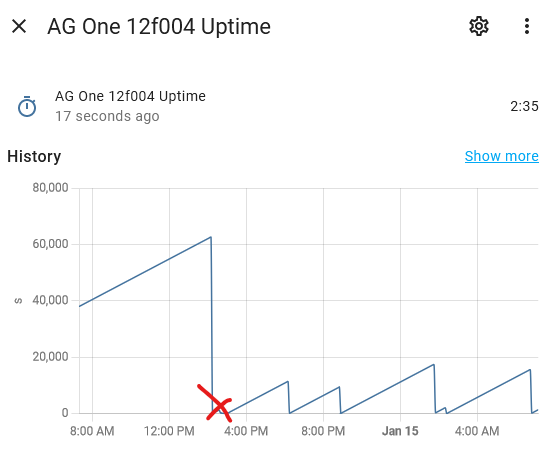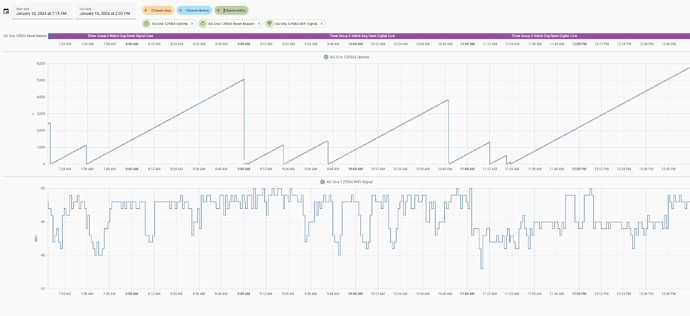I really want to try to only have one main config for every AG device. Maybe your solution is on to something because I can filter out non valid measures etc. The drawback is that if I want to include many more sensors they all need to be included and will collide proabably.
I tried with setting up fake template sensors which can be replaced with the real sensor but that also generates errors I cannot fix. If only esphome would support a function like id(sensor).exists().
I have no real knowledge about cpp so maybe there is a way to check for an object without using that objectname which causes an error by the compiler. Also tried a pointer from that id, which works, but then again using the real id in after the IF clause gives a compiler error.
The really big workaround is defining a display lambda for a set of sensors which are included together. It works but its not really flexible anymore.


